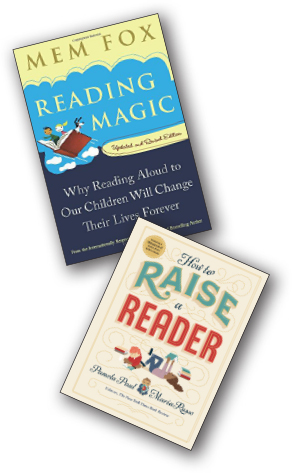
Understand the importance of reading aloud to young children.
By Tina Mraz, FCPL Early Literacy Services Coordinator
Share the Joy of Reading
Reading aloud to young children is one of the most important things you can do to promote their language development and future reading ability, as WETA’s Reading Rockets project indicates. Whether you choose a book from your child’s bookshelf or one from the library, sharing this special time with your child will benefit them in many ways.
Benefits of Reading Aloud
According to The Enchanted Hour: The Miraculous Power of Reading Aloud in the Age of Distraction by Meghan Cox Gurdon, reading aloud builds word sound awareness, stimulates language and cognitive skills, and builds motivation, curiosity and memory.  It also provides children the opportunity to practice listening — a crucial skill for kindergarten and beyond. Reading aloud to children in their early years also exposes them to story and print knowledge as well as words and ideas not often found in day-to-day conversations or screen time.
It also provides children the opportunity to practice listening — a crucial skill for kindergarten and beyond. Reading aloud to children in their early years also exposes them to story and print knowledge as well as words and ideas not often found in day-to-day conversations or screen time.
Other benefits of reading aloud include:
- Increasing vocabulary.
- Creating a habit of reading.
- Encouraging a lifetime enjoyment of books.
- Fostering one-on-one bonding time.
- Strengthening children’s social, emotional and character development.
- Decreasing levels of aggression, hyperactivity and attention difficulties.
- Sharpening children’s cognitive function.
For the best impact, choose books that are fun and engaging and have rhythmic language and repetitive words. The more fantastic the experience, the more children will grow to love books and become lifelong readers.
Learn More
For additional information about reading aloud to young children, check out How to Raise a Reader by Pamela Paul and Reading Magic: Why Reading Aloud to Our Children Will Change Their Lives Forever by Mem Fox.


